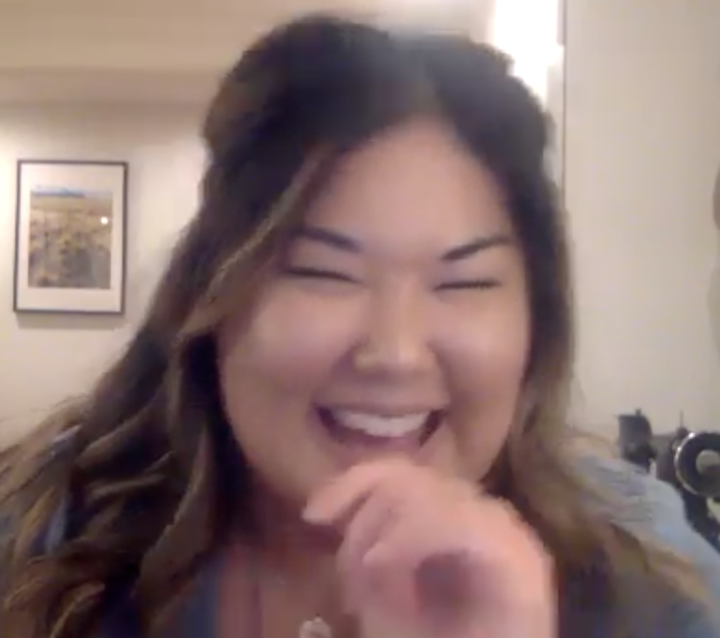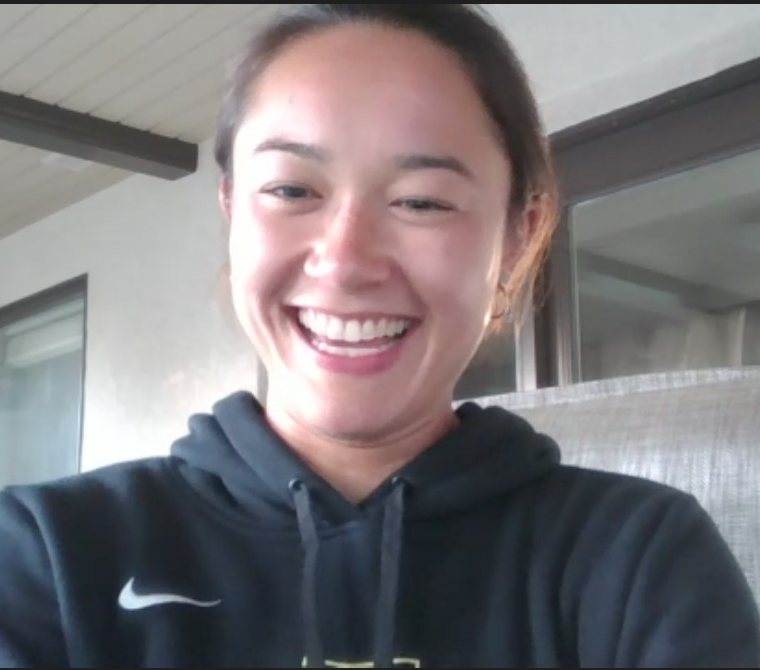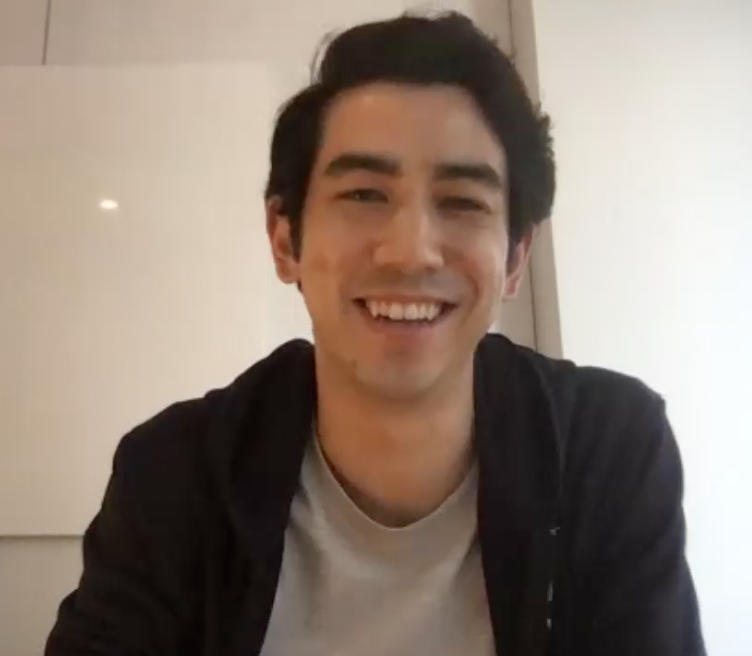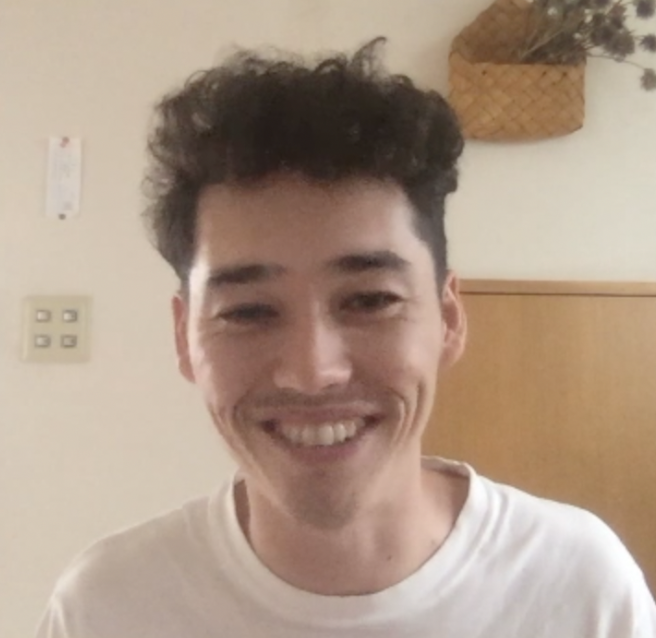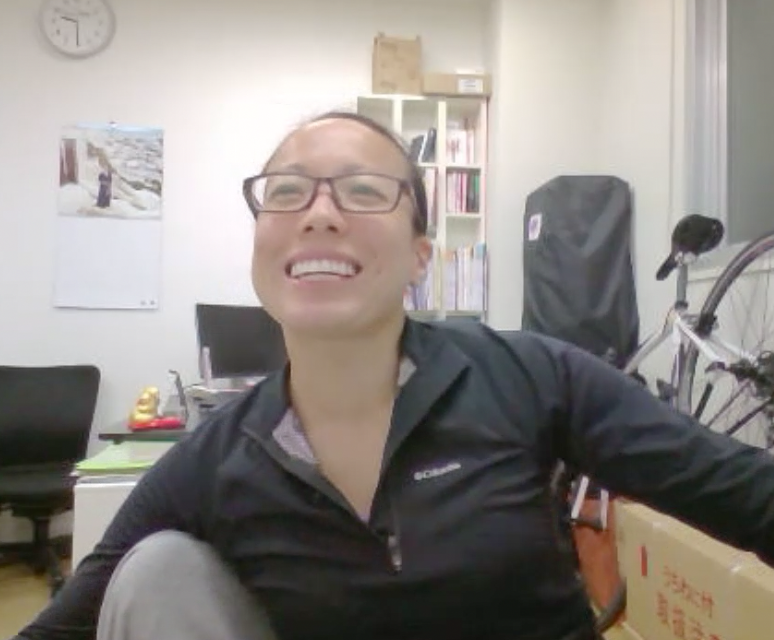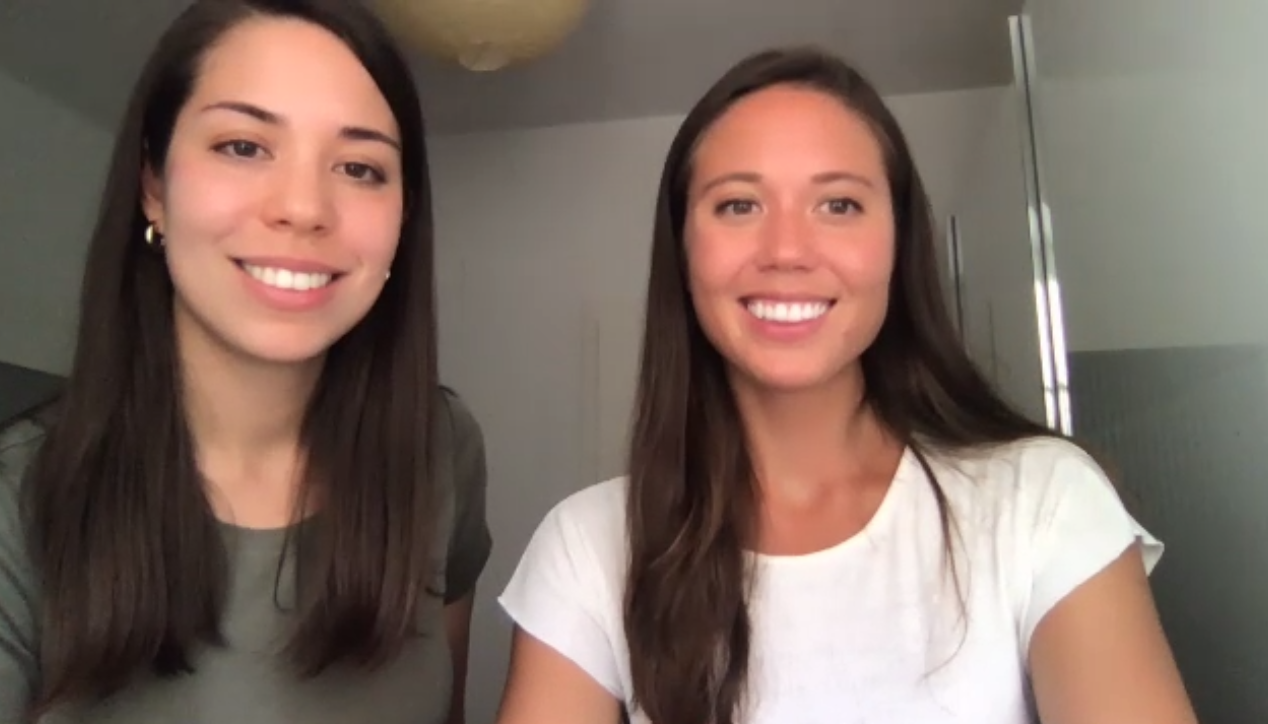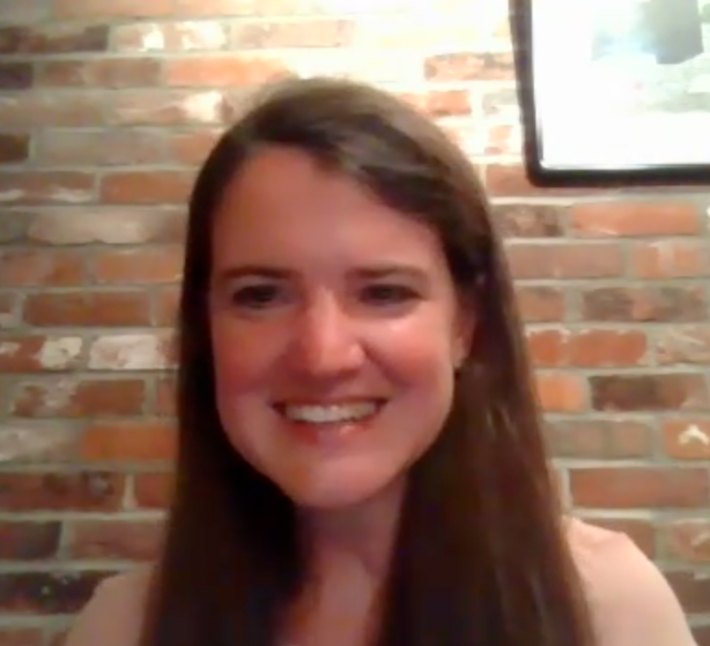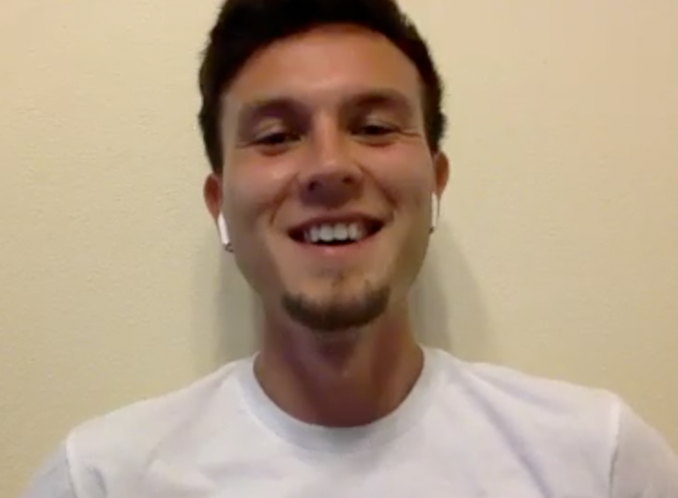Season 3 Episode List
|
Episode 21
Shuichiro Yabui (St. Marys 2004) Educator And Wrestling Coach Shu explains to Nick how understanding the art of coaching wrestling has helped him become a better educator. Shu explains to Nick how wrestling is the most egalitarian sport in the world. The weight classes enable the skinniest lightest student and the heaviest students in the school still have an opportunity to win within their weight class. And the techniques can often be acquired within a high school, unlike sports like basketball and soccer where playing the sport in elementary and middle school is often imperative for a student to excel at the high school level. Shu also explains to Nick how the nature of the sport being a contact/combat sport brings together the team, and makes it the ultimate "team sport", despite the events being 1 v 1. The former Far East champion wrestler speaks to Nick about his psychologically and physically most challenging moments as a St. Marys wrestler. Wrestling was kicked out of the Olympics in 2013, and since then, many changes have taken place in the sport. The two discuss how the rules of wrestling have changed in recent years, and how those changes have affected wrestling today. Shu explains how the coaching standards were changed in 2013, and how he was part of the first cohort for international coaching in 2014. The two discuss the advantages and disadvantages of a 3-season sport system vs a year long sports system, and how it is contingent upon the athlete in regards to which methodology works best for him or her. Youtube Link Anchor Link |
|
Episode 22
Serena Tamura (ASIJ 2008) Scientist Serena explains to Nick how the COVID tests work, and what her role entails in regards to the PCR testing in California as a volunteer scientist. Serena explains to Nick how many of the graduate students received an email in the spring asking volunteer to analyze the samples of COVID tests, and how many have come through and are currently volunteering to help with the process of COVID-19 detection. The two discuss the frustrations of seeing people in the United States who do not wear masks, and yes. "WEAR MASKS PEOPLE!". Serena explains to Nick the topic of her doctoral research where she is developing genetic therapy for autism, and how she uses a tool called CRISPR, which allows scientists to look at genes, and research their mutation. The two discuss how Serena began to develop a true interest in biology in University, and how the study of psychiatric disorders and learning how to analyze the biology itself of those diseases gave her passion to seek treatment for what could be perceived often as "untreatable diseases" Serena speaks to Nick about her unique upbringing of being an Asian American growing up in California, but then being thrusted into the international school system in Tokyo at age 11 where she was"Japanese" by blood, but did not speak Japanese. Ironically, upon returning to California, at age 18, Serena joined Stanford as the "international student". The two discuss how the Tokyo Alumni's share this identity of being "international school grads", before being "American", or "Japanese" or "TCK", and pride themselves for always having this "outside perspective" that only fellow alums could empathize with. *the audio for this episode lags at times. Youtube Link Anchor Link |
|
Episode 23
Erika Brinley Stay at home Mom Erika explains to Nick what a Bachelors in Science in "Family Development" is, and why she decided to pursue that major. The two discuss the difficulty of growing up bilingual, and how the pathway of being a "true bilingual" in two languages is not an easy task. Erika explains to Nick some of the most common questions she receives in regards to parenting tips, and explains to him what type of advice she provides to other parents. She explains terms like positive parenting and natural consequences, and how those terminologies are utilized in parenting. The two also discuss screen time, and how there has been a rampant uptake in the amount of screen time by children the past decade, and the potentials and dangers of increased screen time for children. Nick and Erika both grew up in bilingual households,(Nick in Japan and Erika in both the USA and Japan), and the two discuss the difficulties growing up with two languages. Youtube Link Anchor Link |
|
Episode 24
Angie Marsh Aviation Officer Angie explains to Nick the unique inner-workings of West Point, and how it operates. For example, certain grade levels are not allowed to befriend others, and how upperclassmen are allowed to wear civilian clothing and drive, while this is not allowed for the underclassmen, especially the freshman, who are known as "plebes". Angie clarifies for Nick his query in regards to the "basketball throwing test", West Point has as part of its physical fitness test, and why it exists. Angie explains to Nick the various type of activities that are offered at West Point, and how the clubs and activities offered are a bit unique, in comparison to the standard four years University. They also discuss how the size of West Point has affected her classroom sizes and learning experience. Amongst the 17 possible branches of the military, Angie speaks to Nick why she decided to go the route of aviation. She also explains how "posting" and "branching" works in regards to how military personnel is stationed. At the very end of the podcast, Angie explains and encourages current high school students to explore the ROTC system, and why she strongly recommends it. Youtube Link Anchor Link |
|
Episode 25
Philip Seiji Vincent (ASIJ 2007) Managing Partner (Japan) - Plug and Play Japan Seiji explains to Nick the role of Plug and Play in Japan, and how they help create bridges between the large corporates in Japan, with new innovative startups. The two discuss the difficulties of bridging the two very different cultures of innovative startups and conservative Japanese corporate culture. Seiji, having spent roughly half of his life in Japan, and half in the United States, a bilingual and bicultural individual feels like his role of connecting startups to large corporations is a perfect fit for him, and for international school graduates who often possess this similar background. The two discuss how Japans technology was cutting edge in the 80s and 90s, but how the environment in regards to tech has been rapidly changing the past few decades. And in certain ways, Japan is falling behind, and how slowly but surely this has been leading towards a push by the Japanese government as well as major Japanese companies to begin to invest more in startups and become part of the venture capital culture. The two discuss the evolution of what is considered "professional dress", and how Silicon Valley is revolutionizing what it means to "dress as a professional" around the world, as Seiji helps explain to Nick why he keeps seeing Patagonia clothing being worn by tech executives. Youtube Link Anchor Link |
|
Episode 26
Ian Shimizu (St. Marys 2011) Environmentalist WeMori Kickstarter Link Ian explains to Nick what WeMori does, and how their Kickstarter works. He explains to Nick about the two types of the awards backers of WeMori can receive, washi and an "up-cycled" t-shirt. He explains how "washi" is in a sense the worlds most "sustainable paper", since its paper you can wash. He also explains to Nick what "up-cycling" is and how the t-shirts created specifically for his kickstarter backers are made out of this unique system of "up-cycling". Ian explains to Nick the importance of mind set in regards to understanding why we have the products we do, and to understand what happens to these products once they are used. That we must consider the "story" of products in front of us in regard to where they come from and where they are going. By understanding what is around us, we can then understand how we can change our daily routines in order to live a lifestyle that is more aware of the holistic picture of what makes our everyday life. Ians advice in regards to what the average person could do in regards to making immediate changes would include, but not exclusive to; eat less/no meat, use renewable energy, use less disposable bottles, ride fewer planes, and help protect and restore forests. The two discuss nuclear energy, and how its a very divisive issue without a concrete answer, especially in Japan that has historic trauma in regards to nuclear power, and is in a geopolitically precarious location. Ian and Nick then discuss renewable energy. The advantages/disadvantages as well as the general question of whether "alternative energy" alone is a resolution to our environmental issues. Ian explains to Nick the root of where his passion for environmentalism came from, and how it a series of events, from his childhood all the way to the present day, which had molded him to become the environmentalist he is today. The two discuss "Earthman" (Article with "Earthman" from France). Ian explains to Nick how "Earthman" started around 6-7 years ago by him, and is now part of any climate March in Japan today walking in the front row. Ian explains to Nick the importance of education and awareness in regards to environmental issues, and how he has utilized platforms such as 350 and Spiral Club to help this happen. Spiral Club Articles link Youtube Link Anchor Link |
|
Episode 27
Ayaka "Faith" Suzuki (ASIJ 2006) Age Group Triathlete Faith explains to Nick what triathlons and Iron Man races are, and the two go on to discuss how the demographics of triathlons compare to the demographics of marathon runners. Faith explains to Nick why triathlons have gained a reputation of being a sport for the wealthy, and what type of data has been used to substantiate these claims. Faith explains to Nick that however, it is still possible for someone to participate with a lesser income, but that the main barrier of entry is purchasing a high function bicycle, which many people spend a few thousand dollars on. Faith explains to Nick her personal experience as a triathlete, and how her participation in triathlons are often not a cheap activity. The events often cost at least $400, and flights/hotels on top of that initial cost. Faith explains to Nick why the cost of triathlons is more expensive than marathons, and how security, safety and staffing often increase the cost in comparison to your local home town 5K. Faith mentions how weight can work for or against you when it comes to biking in triathlon, especially depending on the course's wind and uphill/downhill. Faith explains to Nick how categorization is done in triathlon, and how she hopes to see more women get involved in the sport, especially in Asia. She is part of a non-profit with a mission to advocate for a higher percentage involvement with triathlons, and why its so important to not only get women involved with triathlons, but various minority groups more involved in a sport which has been historically heavily white and male. Youtube Link Anchor Link |
|
Episode 28
Alissa Lorentz (ASIJ 2005) & Anna Lorentz (2009) Marketing & Communications & Account Management & Sale The two explain to Nick their upbringing and how they learned to grow up with Japanese, Thai, and English at the same time. Nick asks the two what type of advice they would have for mixed families who hope to teach their children 2, 3, even 4 languages. Alisa emphasizes that its' important that parents stay consistent with the languages they teach to their children, and fight the urges to "cave in" if a child begins to focus only on one language, and may reject the "minority language". The three discuss how language acquisition is often highly nuanced, and even within the same family, there will be somewhat of a deviation of language levels amongst siblings. In the second half of the podcast, the three discuss how culture affects the workplace. Alissa has experience working in the US and Europe, Anna in Singapore, Thailand, and Portugal, and Nick in Bahrain, Honduras, South Korea, and Japan. Anna explains to Alissa and Nick some first-hand differences she experienced in working in New York in comparison to Bangkok. The three discuss topics such as gender in the workplace and work-life balance, and how these topics differ in the various locations they have worked in with specific on issues such as maternity leave and "days off of work" employees get from country-to-country. The interview concludes with Alissa and Anna sharing some words she felt were unique to some of the countries she has lived in, and shares those words and what they mean. Youtube Link Anchor Link |
|
Episode 29
Megan Gates (ASIJ 1987) (Former ISSH & YIS) Lawyer Megan explains to Nick about how ASIJ has changed in comparison to when she attended in the 1980s. Megan speaks to Nick about SOX (Sarbanes-Oxley Act 2002) and Mergers & Acquisitions, and how oversight in regards to company accounting governance has evolved since the early 2000s to the current day, including the events which transpired following the 2008 financial crisis (Such as the passing of the Dodd-Frank Act). The two discuss how much industry-based knowledge is needed by lawyers when consulting specific companies, and Nick gets jealous when hearing about the time Megan worked with a company that dealt with European soccer. Megan explains to Nick about how woman in law has changed and evolved the past two decades, and how companies like Mintz do an especially excellent job when it comes to the advancement of woman. Megan explains to Nick how the issue remains as "retention of woman", where law school graduates remain relatively close to 50/50, but this balance begins to drop as female lawyers become more senior. The podcast concludes with the two discussing being a TCK, and their comparative experiences of living in Japan vs the USA. Youtube Link Anchor Link |
|
Episode 30
Mobi Fehr Soccer Player Mobi talks to Nick about having multiple passports, and how he ended up being scouted to play for the US U-17 team when he was a youth player for Tokyo Verdy. Mobi explains to Nick about how the footballing culture at the youth level differed in the three countries he played during his teen years, Switzerland, the USA, and Japan. Mobi also talks about how his multi-cultural background has helped him with communication skills on the pitch, and has helped him become an overall player. Mobi and Nick talk about development for young soccer players, and Mobi explains his positions in regards to "3-sports a year" vs "1-sport a year" for youth level players. Mobi explains to Nick struggles he has faced as a professional footballer and what the most difficult aspect of being a professional athlete is. The two discuss the philosophical element of sports, whether or not nature or nurture is the driving factor of success as Mobi reflects on his professional career in regards to different players he has encountered in the past. Mobi speaks to Nick about how his international experience at Santa Maria and CAJ helped him now as a professional soccer player, because it exposed him from a young age to various ethnicities, nationalities, and languages. Youtube Link Anchor Link |


